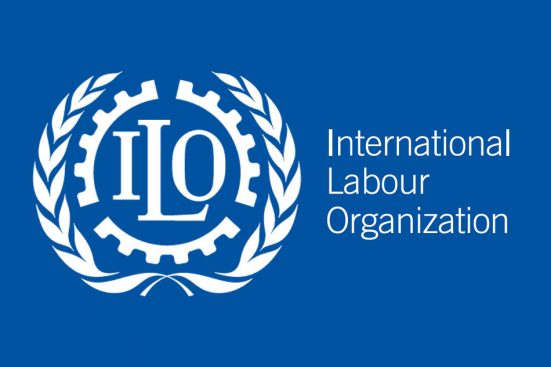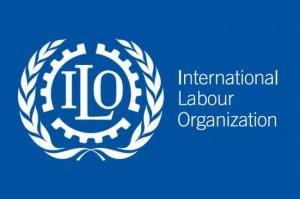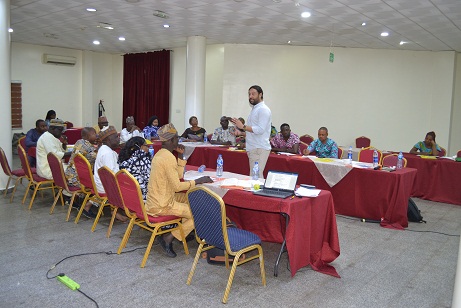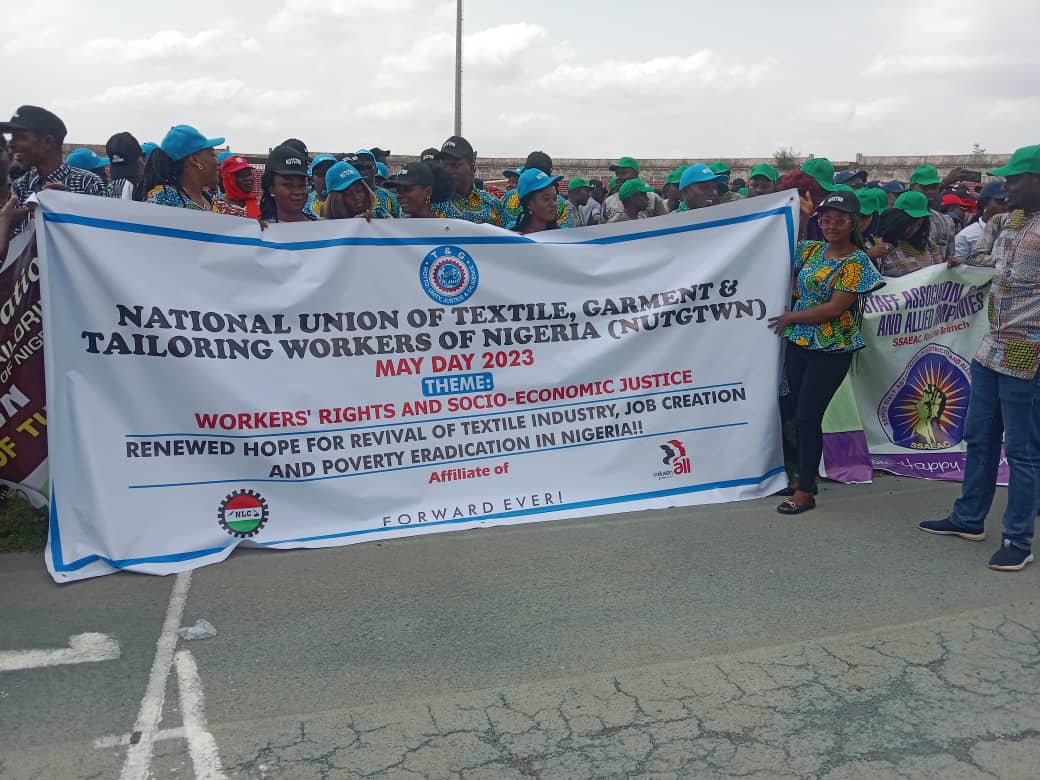
Founded in 1919, International Labour Organization (ILO) is the first UN agency. It marks 100th anniversary this year: 2019. This year’s Session of its annual Conference therefore assumes a special and historic significance. At its 102nd Session in 2013, some 6 years ago, yours comradely as a delegate served on the Conference Committee on Sustainable Development. Importantly too, as the then Chairman of the NLC International Relations committee I took the floor at the Plenary which opened on the 12th Wednesday of June in Geneva, Switzerland to discuss the report of the then newly appointed 10th ILO Director General, Guy Ryder. Guy Ryder passes for a “Centenary DG”. He is the first unionist to head the ILO that has paraded 9 other DGs.
My intervention on the twin issues of sustainable development and global poverty then still remains valid today. An old received wisdom has it that “He who does not look ahead always remains behind”. The Director-General’s Report entitled; Towards the ILO centenary; Realities, renewal and tripartite commitment was comprehensively forward looking. The strength of his vision lies in its profound appreciation of the current realities in the world of work and its proposals for the future. Two issues are of special interests; war against extreme poverty and sustainable development. It is now fashionable to lament the plight of the poor. But it was ILO which first commendably raised the alarm about the danger of global poverty. And that was at a time it was risky to do so! United States of America did not join the ILO until 1934 under President Franklin Roosevelt. It actually once labelled the moderate lofty human ideals of ILO “communist” and “inimical to free enterprise”.
ILO Objectives in the Declaration of Philadelphia in 1944 say it all; poverty anywhere constitutes a danger to prosperity everywhere! Overcoming poverty is clearly surmountable as repeatedly demonstrated in ILO reports. China’s dramatic transformation has taken millions out of poverty. Globally, progress has been made in the struggle to eradicate poverty. However there is the danger of the emergence of what I call “the new poor,” ironically in a number of middle income countries that include Nigeria. Nigeria for instance has the dubious status of producing the richest man in Africa, few billionaires in Africa, side by side being the capital of world poor! “These new contours of poverty and prosperity” task us to critically relook at the ILO mandate. The poor need jobs, incomes, food, housing, schools, electricity, roads, pension, credits NOT sympathies, recommendations and conclusions.
In any case behind the miracle of the rich is state support in forms of subsidies, tax concessions, access to cheap credits and energy. It’s not always “the survival of the fittest!” What is good for the rich is even more desirable for the poor. At ILO centenary, poverty anywhere remains a danger to prosperity of the few. The zones breeding terrorism are poverty zones. There is an inverse relationship between the prosperity of the few and the misery of the many. Millions of youths and women lack jobs. Millions do precarious jobs without minimum wages. Many young women and children are pushed into prostitution and child labour. All these unacceptable deprivations take place in a number of member-countries of ILO that parade few billionaires and even owners of private jets! We must reverse this trend.
The global widening income inequalities undermine the struggle for social justice. Mahatma Ghandi of India said it all: “The world has enough for everyone’s need, but not enough for everyone’s greed”. At centenary, ILO must through its instrument of social dialogue work for participatory wealth generation and wealth redistribution. It is simple common sense! A Nigerian proverb says, “It is an unthinking man who achieves prosperity, and then finds with time, that his body can no longer pass through the door.” We have downsized the poor too much, too frequent! The extreme few rich must also shed the weight of their excess wealth through reinvestment of idle luxury wealth in sustainable labour intensive industries, public sector institutions, public schools and creation of decent green jobs. “The alcohol that is insufficient for a whole town ought not to intoxicate one man.”
In the next century, ILO should be celebrating the wealth of nations and peoples of our planet not lamenting the poverty of many and prosperity of the few. We must replace the well-having of the few with the well- being of the many.
A Nigerian proverb says it all, “Work is anti-dote/remedy to poverty”. However without sustainable development there cannot be decent jobs. We have to reinvent development before we can even make it sustainable. There is a new underdevelopment and de-industrialization in Africa. Many African economies are outside development discourse much less sustainable development! Many are neck-deep in corruption. Growth drivers in the continent are in the ever wasteful conflict ridden extractive sectors. Economies that live on extractions of raw materials without value additions pose serious danger to the climate also.
ILO’s priorities should therefore include the promotion of economic diversification in constituent member states that are currently dependent on export of raw materials.
Countries should be encouraged to create value adding green economic activities and create quality jobs through appropriate macro-economic and industrial policies. 2008 global market collapse had long demystified neo-liberalism as promoted by the IMF and World Bank. The state has business in business. Indeed the state is a business that must be well run failing which private businesses are imperiled. Real sector is dying killing mass decent jobs. There is a withering away of the working class. Labour standards without working classes are standards in vain!







